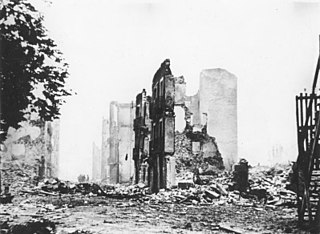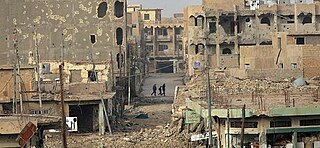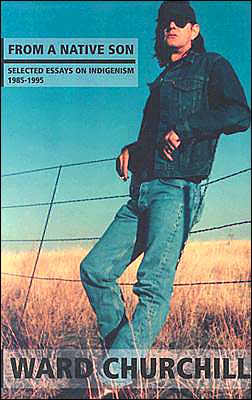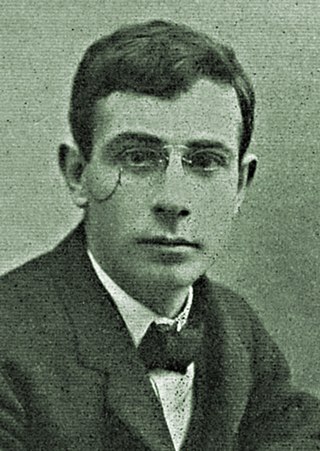
The September 11 attacks transformed the first term of President George W. Bush and led to what he referred to as the war on terror. The accuracy of describing it as a "war" and its political motivations and consequences are the topic of strenuous debate. The U.S. government increased military operations, economic measures, and political pressure on groups that it accused of being terrorists, as well as increasing pressure on the governments and countries which were accused of sheltering them. October 2001 saw the first military action initiated by the US. Under this policy, NATO invaded Afghanistan to remove the Taliban regime and capture al-Qaeda forces.

The aerial bombing of cities is an optional element of strategic bombing, which became widespread in warfare during World War I. The bombing of cities grew to a vast scale in World War II and is still practiced today. The development of aerial bombardment marked an increased capacity of armed forces to deliver ordnance from the air against combatants, military bases, and factories, with a greatly reduced risk to its ground forces. The killing of civilians and non-combatants in bombed cities has variously been a deliberate goal of strategic bombing, or unavoidable collateral damage resulting from intent and technology. A number of multilateral efforts have been made to restrict the use of aerial bombardment so as to protect non-combatants and other civilians.
The Saddam–al-Qaeda conspiracy theory was based on false claims by the United States government alleging that a secretive relationship existed between Iraqi president Saddam Hussein and the Sunni pan-Islamist militant organization al-Qaeda between 1992 and 2003. U.S. president George W. Bush used it as a main reason for invading Iraq in 2003.

The Iraqi civil war was an armed conflict from 2006 to 2008 between various sectarian Shia and Sunni armed groups, such as the Islamic State of Iraq and the Mahdi Army, in addition to the Iraqi government alongside American-led coalition forces. In February 2006, the insurgency against the coalition and government escalated into a sectarian civil war after the bombing of Al-Askari Shrine, considered a holy site in Twelver Shi'ism. US President George W. Bush and Iraqi officials accused Al-Qaeda in Iraq (AQI) of orchestrating the bombing. AQI publicly denied any links. The incident set off a wave of attacks on Sunni civilians by Shia militants, followed by attacks on Shia civilians by Sunni militants.

The proposed invasion of Afghanistan prompted protests with mass demonstrations in the days leading up to the official launch of the war on October 7, 2001. The continuation of the war in Afghanistan from 2001 to 2021 lead to further protest and opposition to hostilities.

"Little Eichmanns" is a term used to describe people whose actions, while on an individual scale may seem relatively harmless even to themselves, taken collectively create destructive and immoral systems in which they are actually complicit. The name comes from Adolf Eichmann, a Nazi bureaucrat who helped to orchestrate the Holocaust, but claimed that he did so without feeling anything about his actions, merely following the orders given to him.

Ward LeRoy Churchill is an American activist and author. He was a professor of ethnic studies at the University of Colorado Boulder from 1990 until 2007. Much of Churchill's work focuses on the historical treatment of political dissenters and Native Americans by the United States government, and he expresses controversial views in a direct, often confrontational style. While Churchill has claimed Native American ancestry, genealogical research has failed to unearth such ancestry and he is not a member of a tribe.

From a Native Son: Selected Essays on Indigenism, 1985–1995 is a 1996 book by Ward Churchill. It is a collection of 23 previously published essays on various topics relevant to the indigenous peoples of the Americas in relation to their experience of being colonized. It is introduced by Howard Zinn.

The Iraq War, sometimes called the Second Gulf War, was a protracted armed conflict in Iraq from 2003 to 2011. It began with the invasion of Iraq by the United States-led coalition that overthrew the Ba'athist government of Saddam Hussein. The conflict continued for much of the next decade as an insurgency emerged to oppose the coalition forces and the post-invasion Iraqi government. US troops were officially withdrawn in 2011.

The 2002 State of the Union Address was given by the 43rd president of the United States, George W. Bush, on January 29, 2002, at 9:00 p.m. EST, in the chamber of the United States House of Representatives to the 107th United States Congress. It was Bush's first State of the Union Address and his second speech to a joint session of the United States Congress. Presiding over this joint session was the House speaker, Dennis Hastert, accompanied by Dick Cheney, the vice president, in his capacity as the president of the Senate.

The war on terror, officially the Global War on Terrorism (GWOT), is a global counterterrorist military campaign initiated by the United States following the September 11 attacks of 2001, and is the most recent global conflict spanning multiple wars. Some researchers and political scientists have argued that it replaced the Cold War.

Gustavus Myers was an American journalist and historian who published a series of highly critical and influential studies on the social costs of wealth accumulation.

The siege of Sadr City was a blockade of the Shi'a district of northeastern Baghdad carried out by US and Iraqi government forces in an attempt to destroy the main power base of the insurgent Mahdi Army in Baghdad. The siege began on 4 April 2004 – later dubbed "Black Sunday" – with an uprising against the Coalition Provisional Authority following the government banning of a newspaper published by Muqtada Al-Sadr's Sadrist Movement. The most intense periods of fighting in Sadr City occurred during the first uprising in April 2004, the second in August the same year, during the sectarian conflict that gripped Baghdad in late 2006, during the Iraq War troop surge of 2007, and during the spring fighting of 2008.
The 25 October 2009 Baghdad bombings were attacks in Baghdad, Iraq which killed 155 people and injured at least 721 people.

The September 11 attacks were carried out by 19 hijackers of the Islamist militant organization al-Qaeda. In the 1990s, al-Qaeda leader Osama bin Laden declared a militant jihad against the United States, and issued two fatawa in 1996 and 1998. In the 1996 fatwa, he quoted the Sword Verse. In both of these fatawa, bin Laden sharply criticized the financial contributions of the American government to the Saudi royal family as well as American military intervention in the Arab world.

The Iraqi insurgency was an insurgency that began in late 2011 after the end of the Iraq War and the withdrawal of U.S. troops from Iraq, resulting in violent conflict with the central government, as well as low-level sectarian violence among Iraq's religious groups.

The Islamic State of Iraq was a Salafi jihadist militant organization that fought the forces of the U.S.-led coalition during the Iraqi insurgency. The organization aimed to overthrow the Iraqi federal government and establish an Islamic state governed by Sharia law in Iraq.
The Gustavus Myers Center for the Study of Bigotry and Human Rights, earlier known as the Gustavus Myers Center for Human Rights or The Gustavus Myers Center for the Study of Human Rights in North America or several other such variations, was an American nonprofit organization that existed from 1984 to 2009. It took its name from American journalist and historian Gustavus Myers and, in particular, from his 1943 work History of Bigotry in the United States. The center was most known for the Gustavus Myers Outstanding Book Award, given out each year to ten books. The award, in the words of the center, "commends works published in a given year which extend our understanding of the root causes of bigotry and the range of options we as humans have in constructing alternative ways to share power."
The Gustavus Myers Outstanding Book Awards were literary awards given out each year between 1985 and 2008 by the Gustavus Myers Center for the Study of Bigotry and Human Rights. Each year ten works were so noted for their treatment of the subjects of bigotry, intolerance, and inequitable power arrangements in society.















